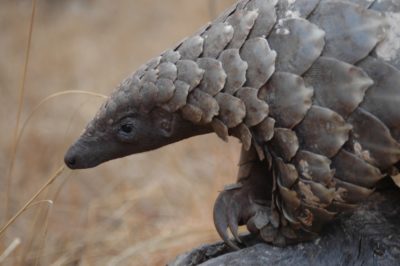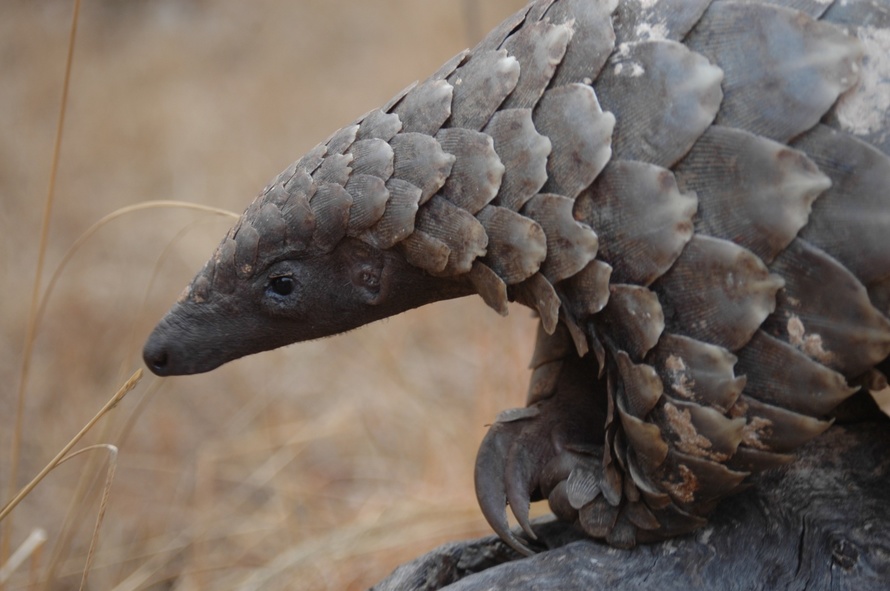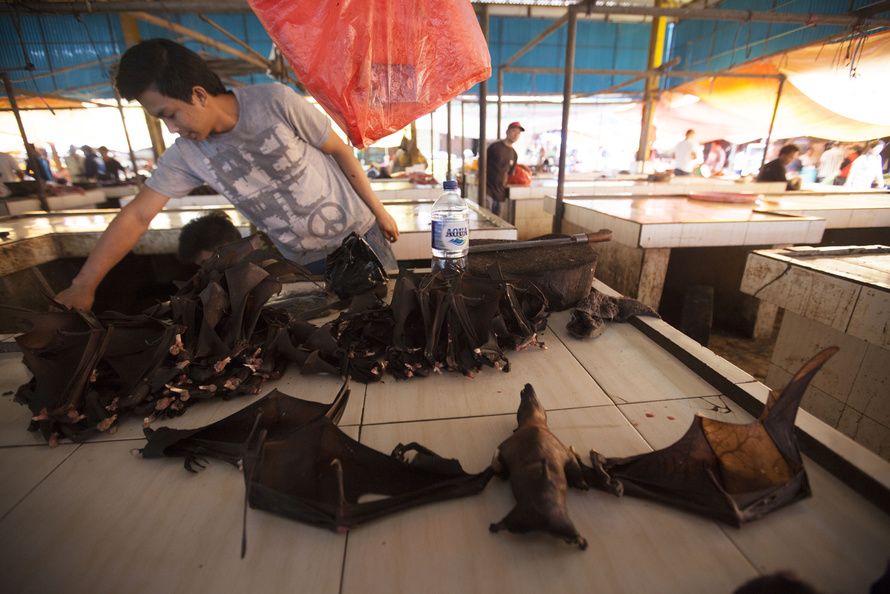


COVID-19 presents a double-edged sword for wildlife. While it could trigger a permanent ban on trade, it will almost certainly lead to a spike in poaching.


COVID-19 has brought great pain, but also great opportunities. In a bid to rid the planet of zoonotic diseases – those that can jump between animals and humans – one positive outcome may be a ban on animal trafficking.
Earlier this year China moved to enforce a strict wildlife market ban after learning that Corona may have spread from bats in a wet market. It also promised stringent laws and penalties combined with better enforcement and public education.
President Xi Jingping said in a speech in February: “We have long recognized the risks of consuming wildlife, but the “game industry” is still huge and poses a major public health hazard. No more indifference! I have given instructions on the subject. Relevant departments should strengthen law enforcement, strengthen market supervision, resolutely ban and crackdown on illegal wildlife markets and trade, resolutely eradicate the bad habit of indiscriminate eating of wildlife, and control major public health risks at the source.”
But loopholes persist, including trading wild animals for medicine, as pets and for research. And the question remains; after the dust settles on corona, whether the ban will be permanent. History doesn’t offer much hope. After SARS in 2003, trade of wildlife in China quietly reopened.
However this time round, perhaps with the help of social media, a ban on wildlife trading has generated full public support. A January online survey by Beijing University found 97% of respondents were “strongly against wildlife consumption.” New research commissioned by WWF via GlobeScan shows people in Hong Kong SAR, Myanmar, Thailand, and Vietnam support actions by their governments to close all illegal and unregulated wildlife markets that may pose a risk to human health and lead to the depletion of species in the wild.
And according to non-profit WildAid CEO Peter Knights, “as it did with the ivory trade, China may be able to turn this devastating crisis into a positive if it can lead the world in implementing a comprehensive solution.” He points out that Vietnam, Thailand, Indonesia, Laos, Myanmar, and Cambodia all have significant consumption of wildlife in restaurants and markets. In Africa, where primates are often part of the trade, the cross-species disease transmission risks would seem even higher, with West and Central African countries particularly at risk.


If corona ultimately leads to strict enforcement on wildlife trafficking rules, it will be a ray of light in a dark situation. But there will be negative impacts on wildlife that, potentially, far outweigh the postiive. Even after a vaccine for corona is developed, government and private aid to, and support for, wildlife issues will slip far down the agenda, as economies shrink and national debts balloon.
Ol Pejeta Conservancy, for instance, a 360 square kilometre not-for-profit wildlife conservancy in Central Kenya which is home to the last two northern white rhinos in the world, anticipates a shortfall of US$1.8 million in 2020 for essential operations. They are making an emergency funding appeal.
In the developed worlds, there has been a perceived rejuvenation of nature; as pollution levels drop with fewer cars and planes, cleaner air and water seems apparent with more animals returning to the scene. But that is a short term outcome. The majority of the world’s wildlife, and in particular the endangered species, lives in low income countries, where the economic impact of COVID-19 will be felt most keenly.
Dr Krithi Karanth, a conservation biologist based in Bangalore, runs the Centre for Wildlife Studies which emphasises the importance of limiting human-animal conflict. She cautions: “Many people are celebrating the appearance of wildlife in their backyards and streets across the world. I am concerned about the increase in poaching being reported in many places, either due to lower vigilance because of the lockdown or due to more people being pushed further into poverty and therefore consuming more wild meat.”
In developing countries, natural environments are rarely well-policed. Because of corona, people are poorer and hungrier, especially those in countries which rely on tourism which has dropped off a cliff. As a result, there has been a rise in hunting, fishing, and poaching and deforestation, often by rural people who may have lost their livelihood due to COVID-19. Destructive fishing techniques like dropping sticks of dynamite, or poisoning shallow waters, wreak havoc on the environment.
Last week the US Congressional International Conservation Caucus hosted a briefing entitled, “Wildlife Trade, Origins of COVID-19, and Preventing Future Pandemics. The Deputy Vice President for Conservation at the International Fund for Animal Welfare, Dr Jimmiel Mandima, said: “With as much as 99% of tourism revenue lost for the foreseeable future, we will see conservation successes lost unless we can provide short term stimulus or emergency funding that allows communities to survive without reverting to illegal or counterproductive activities.”
The briefing suggested that Zambia, Kenya and Zimbabwe would be some of the hardest hit countries in Africa, and revenues from tourism contributes largely to law enforcement.
This is not to mention the human cost. Even before the pandemic there were concerns over a global drought. Now with millions of people returning from cities – where their workplaces are shuttered – to their homes in rural villages, almost certainly the greatest impact will be felt on poor families.
Dr Karanth, who was last year was awarded the Rolex Award for Enterprise – also runs two non-profit organisations. They are Wild Seve, which helps farmers to get compensation for damaged crops caused by livestock, and Wild Shaale, which goes into schools and teaches children the value of wildlife, rather than seeing them as pests or food. She hopes that people will see the success of programs like this which aims to repair fractures between humans and large mammals, and replicate them elsewhere.
She adds: “If something like this doesn’t change behaviours and mindsets, nothing will. Unless we stop consuming and trading wildlife meat, this will happen again.”
WildAid is inviting the public to drive a global paradigm shift in wild animal abuse by signing a petition to end the trade.
Stay in touch and get the latest WildAid updates.
SIGN UPAbout WildAid
WildAid is a non-profit organization with a mission to protect wildlife from illegal trade and other imminent threats. While most wildlife conservation groups focus on protecting animals from poaching, WildAid primarily works to reduce global consumption of wildlife products such as elephant ivory, rhino horn and shark fin soup. With an unrivaled portfolio of celebrity ambassadors and a global network of media partners, WildAid leverages more than $308 million in annual pro-bono media support with a simple message: When the Buying Stops, the Killing Can Too.
Journalists on deadline may email communications@wildaid.org